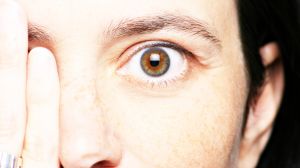Today I was thinking about this study, which came out the other day.
I read it a couple of days ago and didn’t think too much of it. It pretty much agrees with what a lot of us have been saying all along, that there isn’t really an “autism epidemic” – it’s just that a lot more people are being diagnosed, as autism is more clearly defined, the ‘spectrum is widened, and the symptoms are more widely recognized. There are plenty of autistic adults around, in all areas of the spectrum. Some of the ‘lower functioning’ adults were diagnosed as children, many of them were misdiagnosed with other developmental disorders, but a lot of them were never diagnosed at all, and have just had to make it through life as best they can, challenges and all.
This brings me to what I was thinking about today. I’ve heard a lot of parents say things that have been very hurtful to autistic adults. Things like “you don’t speak for my child” or “you’re high functioning, you don’t know what it’s like for my child”, etc, etc. Parents write blog posts about how their kids can’t do this, that or the other, and can’t be expected to, because they have autism, and how dare the world not conform to their needs? They get absolutely livid with their parents, or their grandparents, or aunt June, when they say things like “well, in my day, you ate what you were given” and “we didn’t put up with that kind of behavior”.
Parents say “these people just don’t understand” and “they have no idea what it’s like to raise a child with autism”.
But you know what?! Maybe they do. There’s ample evidence that there’s a genetic component to autism, and that grandma, the one who raised the father of your son (or perhaps the aunt who raised cousin Billy, or that old neighbor lady with the quirky son)? She might have had to deal with a lot of the same things you’re dealing with.
But in her day? There weren’t rules in place forcing schools and insurance companies to provide early intervention therapies, she couldn’t just send him off to professionals to teach him how to eat new things, or ride a bike, or hold a conversation, or speak clearly, or stop banging his head. She couldn’t afford to take him to McDonalds to get his favorite meal every day, if he didn’t want to eat the food that came out of her garden. She knew the schools wouldn’t think twice about spanking him for ‘acting up’, so she had to find ways to help him learn all of the necessary skills on her own.
And your hypothetical husband (or cousin, or neighbor)? His autism is still there. He’s still got quirky habits, shies away from social situations and annoys the crap out of you with his eating rituals and his fixation on certain subjects, but he he functions, more or less, in society.
Perhaps grandma, or aunt Ruby, or that annoying old neighbor of yours does know something of what she’s talking about. Autism isn’t some newfangled thing, and you’re not the first generation of parents that have had to learn how to raise autistic children. The past generations raised these children so well they didn’t even have a name for it, and at least on the higher ends of the spectrum they didn’t even consider it a disorder. Some children were just more difficult to raise than others. Perhaps there’s something to learn from them after all.
Most of you know that I consider myself autistic (very high functioning), you can draw whatever conclusion you want about that. In most areas, I wouldn’t advise anyone to take advice from my parents about parenting, as I’ve been through a lot more than I would ever wish on anyone. And I do believe that my life would have been much easier if I had known about autism 20 years ago. Knowing would have eased my mind about who I was and what was wrong with me, and it would have given me a better idea of what types of help I needed to get.
But I wonder, if I had been born in this generation, diagnosed at an early age, put through battery after battery of different therapies… if I my quirks had been excused because of my diagnosis, or I had been stopped from ‘stimming’ every time I went to swing for hours or played the same song over and over and over… if I had spent years in therapy trying to learn to display empathy and look people in the eyes before I was ready… if I had been put in a separate classroom to work on my ‘social skills’ instead of starting kindergarten early (because I already knew everything they taught in preschool) or if I had been kept from starting college early because of fears about my emotional maturity… would I be the same person today? Most assuredly not. And on most of these points, I really don’t think I would have been better off for it.
I know most parents want the absolute best for their children. This is the reason they push for as many early intervention therapies as they can. They spend thousands upon thousands of dollars on treatments (which often aren’t affective), just to try to help their children beat the odds that say that autistic adults are so much less likely to ‘make it’ in the world. (And don’t even get me started on ‘alternative therapies’.)
At the same time, many of these parents shun the advice of autistic adults and those who raised them. The amount of disdain they hold towards a given individual seems inversely proportional to how ‘autistic’ that adult seems… is the madness not evident here?! The ones they want their children to most end up like are the ones they’re least likely to consult.
The next time you snarl and roll your eyes at the advice of an elder, or an autistic adult, perhaps you should check yourself and see what they actually have to say. And maybe, just maybe, you could better use some of that time, energy and money you spend fighting schools and insurance companies to research what past generations did and work with your child more.
Of course, not every Aunt Betty or grandma knows what they’re talking about when they make snide comments, but perhaps some of them do. And some of the therapies we use today are definitely better than what they did back then. I’m not saying therapies and interventions are bad (though some types most certainly are), but I do think perhaps this generation has lost something by shunning the past, thinking autism is a new phenomenon and the book has to be rewritten for raising these kids.


 We all have these blinders in our lives. Sometimes we know they’re there, and welcome them. Some creep up little by little and we don’t even notice. Some, we’ve gotten so used to that we can’t even remember what life was like without them.
We all have these blinders in our lives. Sometimes we know they’re there, and welcome them. Some creep up little by little and we don’t even notice. Some, we’ve gotten so used to that we can’t even remember what life was like without them. 